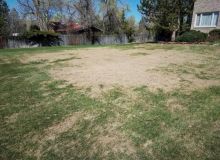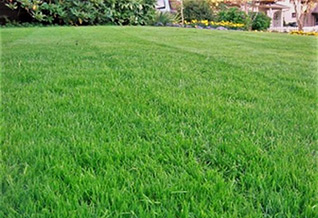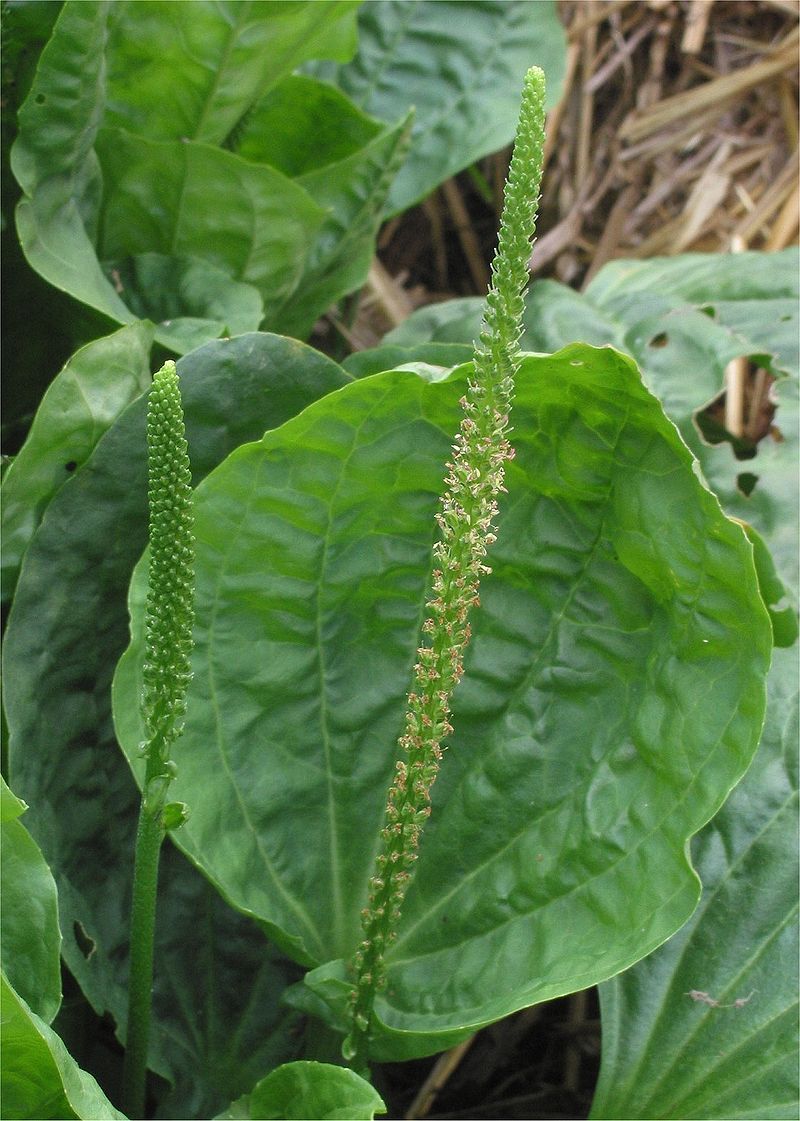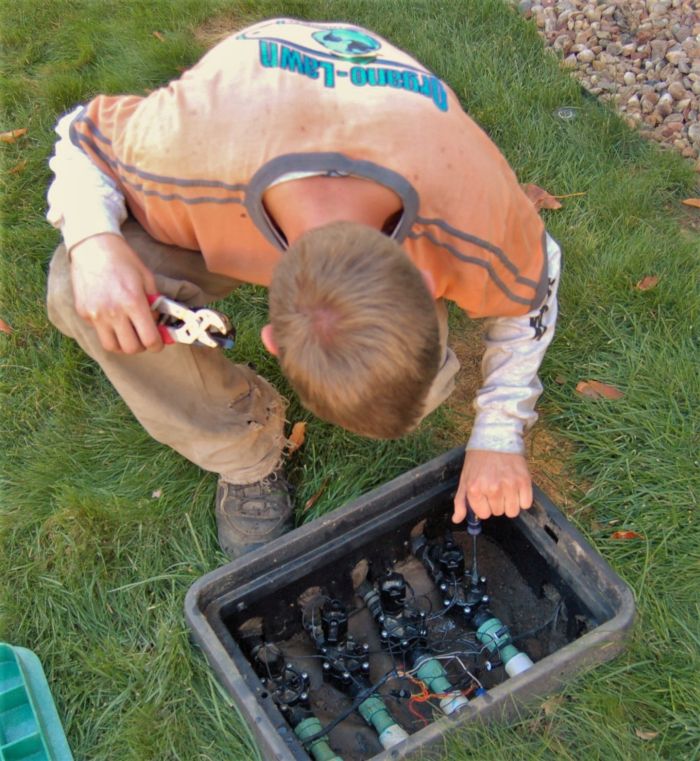Spider mites can be a real nuisance to your Colorado lawn. Worst of all, they’re hard to spot and the real damage is typically only seen after the little buggers have already high tailed it out of the area, leaving you high and dry. Fear not, you can control spider mites organically!
Spider mites are not true insects, but spider mites are a type of arachnid, and are relatives of spiders, ticks and scorpions.
Adults are reddish brown or pale in color, oval-shaped and very small. Some mites like Eriophyid mites are invisible to the naked eye, but the spider mites that damage lawns are about the size of the period at the end of this sentence.
Spider mites live in colonies and feed by piercing leaf tissue and sucking up the plant liquids. Feeding marks show up as light dots on the leaves. As feeding continues, the leaves turn yellow and may dry up and even die.
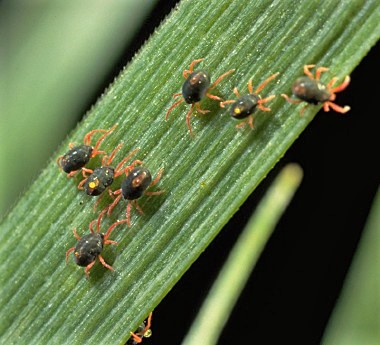
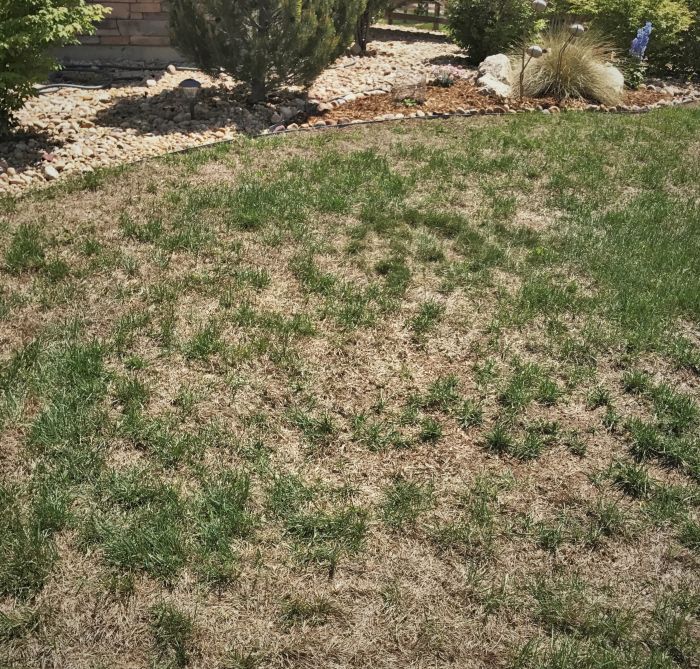
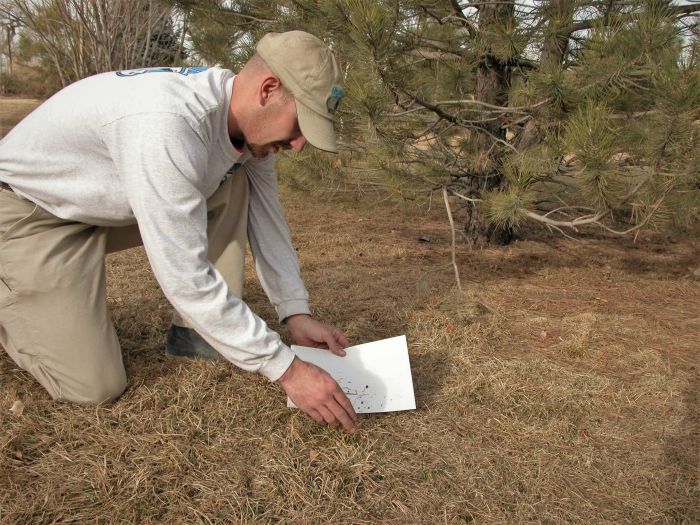
What the heck is a spider mite?
- There are several species of spider mites that can damage turfgrass in Colorado: Clover mites, Banks grass mites and brown wheat mites are the most common.
- The highest risk for damage to lawns occurs during early or the middle spring, but if conditions are perfect lawn mites can cause damage to Colorado lawns as early as December.
- Severe damage to Colorado turfgrass is primarily related to dry conditions and turfgrass that has shallow roots and are already stressed by drought.
- Clover mites can be a serious nuisance pest and sometimes they enter buildings.
- If left alone, spring clover mite populations will decrease by the end of May or as moisture from rain, snow or sprinkler systems damage their populations.
- Lawn mites are considered cool-season mites, and are completely different to many other spider mites that cause damage to trees, shrubs and ornamentals during warm months.

How to Identify Spider Mite Damage in a Lawn
Spider mites are less than 1 millimeter in length and vary in color, from red to brown, sometimes green or yellow. They are almost impossible to see with the naked eye and therefore go unnoticed. So grab a magnifying glass or grab a grandpa and use their bifocals. Lawn spider mites hate moisture and prefer hot, dry climates, which is why you’ll most often find the areas they tend to feed are south-facing. Spider mites will often take shelter during snow storms in evergreen trees, including spruce trees, pine trees arborvitaes, and junipers. Spider mites will congregate on the south sides of buildings, and you’ll find damage to the lawn often occurs in the sections closest to foundations and sidewalks, or upright structures, including trees. On the Colorado Front Range, spider mites tend to do their damage between the months of December-March. Spider mite damage can be stressful to your lawn, and they can even kill your lawn if the infestation is bad enough. Spider mite damage is frequently mistaken for winter die-off.
How to Control Spider Mite Populations Organically
Presently there are no highly effective chemical controls for clover mites, but don’t worry there are highly effect organic controls for spider mites. That is if you consider water to be organic. Yes, water is your best defense to keeping lawn spider mites at bay. Clover mites dislike moisture and clover mite populations on lawns can be controlled by watering the lawn. The most important areas to water during the winter months are warm, dry areas at the base of sun-exposed walls and around evergreen trees. If Colorado hasn’t been receiving natural moisture from the environment, it is important to water the lawn about once a month over the winter months. Since our sprinkler systems are off that time of year, break out the hose and water your lawn the old fashioned way – by hand. If you cannot water your lawn or if you have a severe spider mite infestation we have a wonderful OMRI certified miteicide called Ecotrol which is made of peppermint oil and rosemary oil. The oil will suffocate the soft bodies of the mites and kill them quickly. We love talking organic lawn care, give our team a call at (303) 499-2000 in Boulder or (970) 225-9425 in Fort Collins to learn more about how your lawn can be fully organic.
